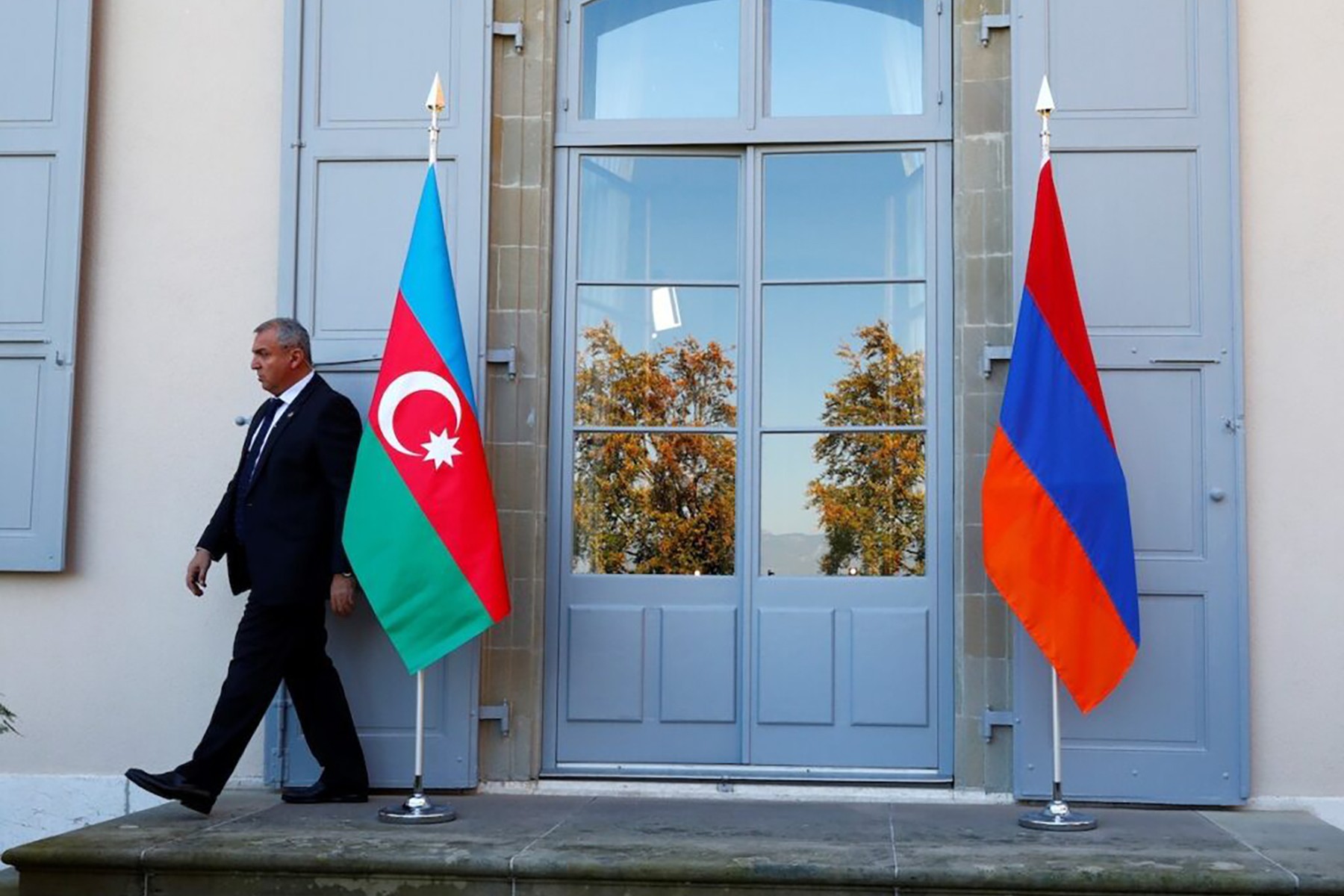
Peace talks between Armenia and Azerbaijan appear to be at a standstill as Armenia continues to push for an agreement to be signed ahead of November’s COP29 summit in Baku.
On Tuesday, Sargis Khandanyan, an MP from Armenia’s ruling Civil Contract party, told Armenpress that Prime Minister Nikol Pashinyan offered to organise a meeting to conclude and sign a peace agreement ahead of the summit, which is scheduled to be held in Baku between 11–22 November.
He said that Pashinyan made the offer to President Ilham Aliyev in Moscow, on the sidelines of the Commonwealth of Independent States summit on 8 October.
‘More precisely, he offered that the foreign ministers hold a two-day meeting to [finalise] the one to two unresolved articles of the peace treaty, and then for the leaders to sign the treaty before the Baku COP29’, he said, adding that he was not aware of whether Azerbaijan had responded to Pashinyan’s offer.
A short clip from the summit surfaced on social media, with the interviewer asking Aliyev and Pashinyan when the peace agreement would be finalised. Aliyev said that they would sign the treaty ‘when we agree on everything’, shrugging his shoulders when asked if a peace agreement could materialise by the end of the year.
Pashinyan responded by saying that Armenia offered its terms for the agreement, and that he believed that treaty was ready to be signed ‘right now’ based on terms the two countries had already agreed upon.
Armenia has been offering to sign an interim peace treaty based on articles it agreed on with Azerbaijan since late August. Azerbaijan has refused Armenia’s offer, despite similarly proposing to do so earlier this year.
[Read more: Azerbaijan refuses to sign peace treaty based on already agreed points]
Earlier this week, Aliyev called the Armenian offer ‘completely unrealistic’, noting he was not aware of any existing precedents for such an agreement.
‘Sustainable, credible, and irreversible peace’
On Tuesday, Armenian Foreign Ministry spokesperson Ani Badalyan said that Armenia had yet to receive a response to their latest peace treaty proposal, which was sent at the end of August.
On the same day, Armen Grigoryan, the Secretary of the Security Council, stated that reaching an agreement on the remaining articles of the peace treaty ‘will take a lot of time’.
‘But we are also sure that if we sign the peace agreement at this moment, it will open the door for a more dynamic discussion’, he said, according to RFE/RL.
‘We understand very clearly that no country has ever solved all its problems with one agreement.’
Armenia’s President Vahagn Khachaturyan has also made statements in favour of signing a deal as soon as possible, telling the Financial Times that it ‘would be good to sign it by COP29’.
In an interview with TV Berlin on 10 October, Elchin Amirbayov, Azerbaijan’s Ambassador for Special Affairs said that Azerbaijan did not ‘entirely’ rule out signing a peace treaty before COP29, but stressed that Azerbaijan wanted to achieve ‘sustainable, credible, and irreversible peace’.
However, he said that Armenia’s constitution formed a ‘major obstacle’ to reaching a peace agreement, and that it contained territorial claims against Azerbaijan.
‘Unless this territorial claim which is embedded in the Armenian constitution is addressed, it doesn’t make any sense for us to sign any peace agreement’, he said.
In late August, Armenia announced plans to hold a referendum to approve a new constitution in 2027. However, Yerevan has repeatedly denied claims that the constitutional referendum is connected to the peace process.
As the talks falter, Azerbaijan has continually warned Armenia against procuring arms, with Aliyev calling on Armenia to ‘stop these dangerous games’.
On 12 October, Azerbaijan instructed its armed forces to stay on high alert to ‘prevent provocations of the revanchist forces’.









